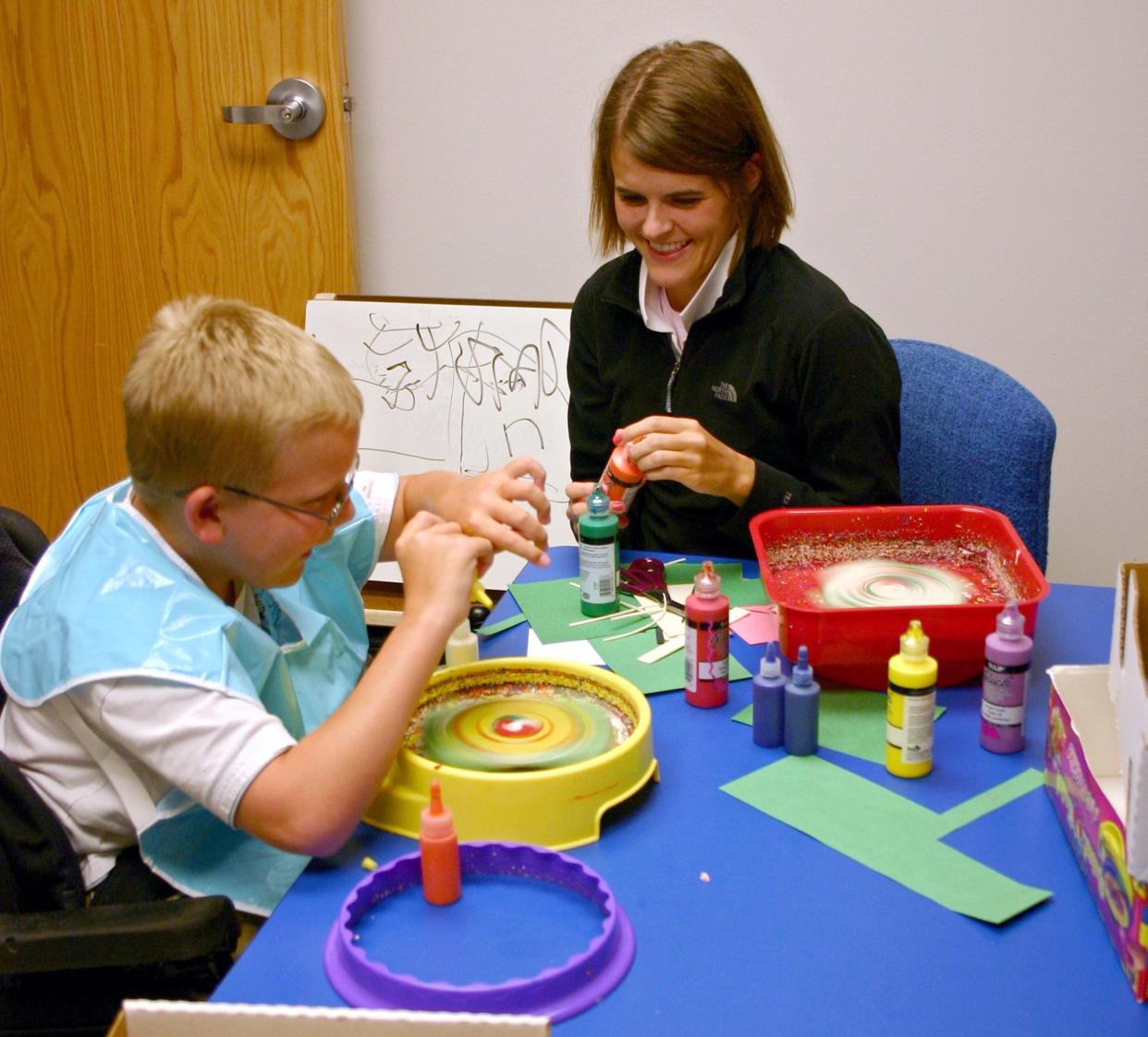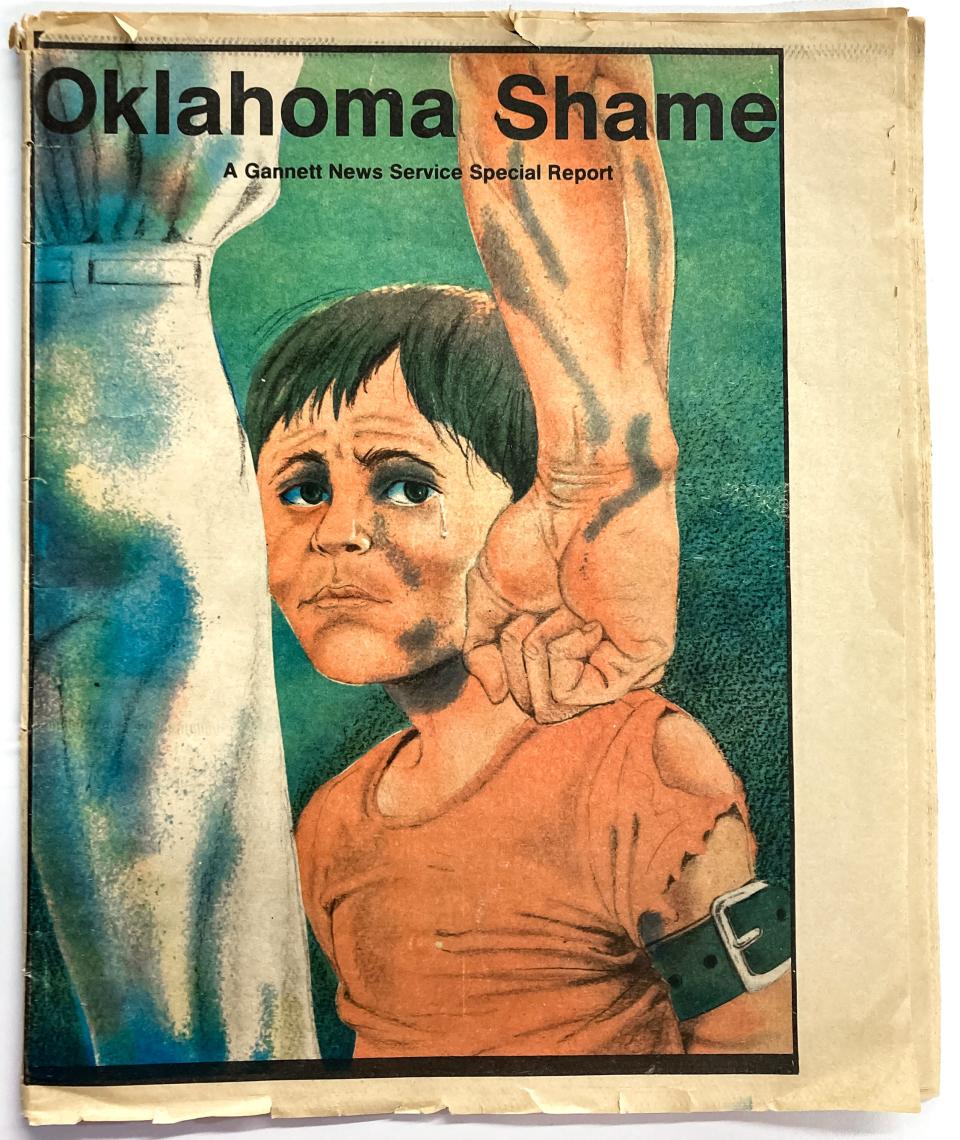Child advocacy group to push for ban on using corporal punishment for disabled kids

- Oops!Something went wrong.Please try again later.
- Oops!Something went wrong.Please try again later.
The Oklahoma Institute for Child Advocacy — a nonprofit advocacy network for children — says it plans to renew its push to eliminate corporal punishment against children with disabilities during the 2024 legislative session.
The move is part of the group's 2024 legislative agenda, said Executive Director Joe Dorman.
Dorman said there is no good reason for corporal punishment against children with disabilities. "It's wrong," he said. "There are many more effective ways of disciplining a child with a disability. It's time for corporal punishment to go."
The nonprofit's effort comes after state Rep. Jim Talley, R-Stillwater, held an interim hearing on corporal punishment this fall. During the hearing two lawmakers — Rep. Jim Olsen, R-Roland, and Randy Randleman, R-Eufaula — criticized the study, calling it one-sided “without an opportunity for anybody with opposing viewpoints to present.”
Olsen has been a vocal critic of other lawmakers’ attempts to outlaw corporal punishment. He said corporal punishment should be a part of proper child training. During the spring legislative session, he debated against Talley’s bill, House Bill 1028. Olsen said lawmakers should base their policy on the Book of Hebrews from the Christian Bible.
More: How often do Oklahoma schools use corporal punishment compared to other states?
"It's best to take God at his word and do things His way," he said. "When we do, things turn out much better."
Along with the pushback against corporal punishment, Dorman said the group's agenda also includes a call to implement the recommendation by the Gov. Kevin Stitt's Child Welfare Task Force. He said institute is encouraging lawmakers to continue funding the "Double Up" program, which matches the value of Supplemental Nutrition Assistance Program —SNAP — dollars spent at farmers markets and grocery stories to promote healthy food choices in lower-income households and families.
“Advocates from across the state came together during our annual Fall Forum to discuss a wide range of issues relating to children,” Dorman said “While this is an ambitious agenda, we believe each component of it is critical to improving the lives of our most important resource.”
Other legislative proposals the Oklahoma Institute for Child Advocacy is pushing for
Dorman said the institute — celebrating its 40th anniversary this year — will continue to push for the adoption of several legislative proposals, including the Family Representative and Advocacy Act, which is legislation that ensures children, indigent parents, legal guardians and Native American custodians who become involved in legal actions brought by the state, have access to legal representation.
He said the institute also wants to reduce the need for the use of group homes, increase educational options for children who use social media, increase the number of school counselors and mental health professionals, expand training for members of the judiciary and attorneys who work in the child welcome system and pass legislation to ensure foster families, foster children, adoptive families and children have access to legal, mental health and community-based services.
"Our goal is to do more for Oklahoma's children," Dorman said.
Dorman said this year’s agenda is special, as it is the last event for the institute during its 40th anniversary year. The nonprofit celebrated four decades since child advocates established the organization as an independent watchdog on state government in the aftermath of the child welfare scandal brought to light in the Gannett report, “Oklahoma Shame.”
He said the institute will host its Legislative Learning Lab on Jan. 31, Feb 1, 2, and 5. The organization’s Advocacy Day at the Capitol will be March 12.

The second session of the 59th Oklahoma Legislature opens at noon on Monday, Feb. 5.
This article originally appeared on Oklahoman: Oklahoma Institute for Child Advocacy goals for legislative session

